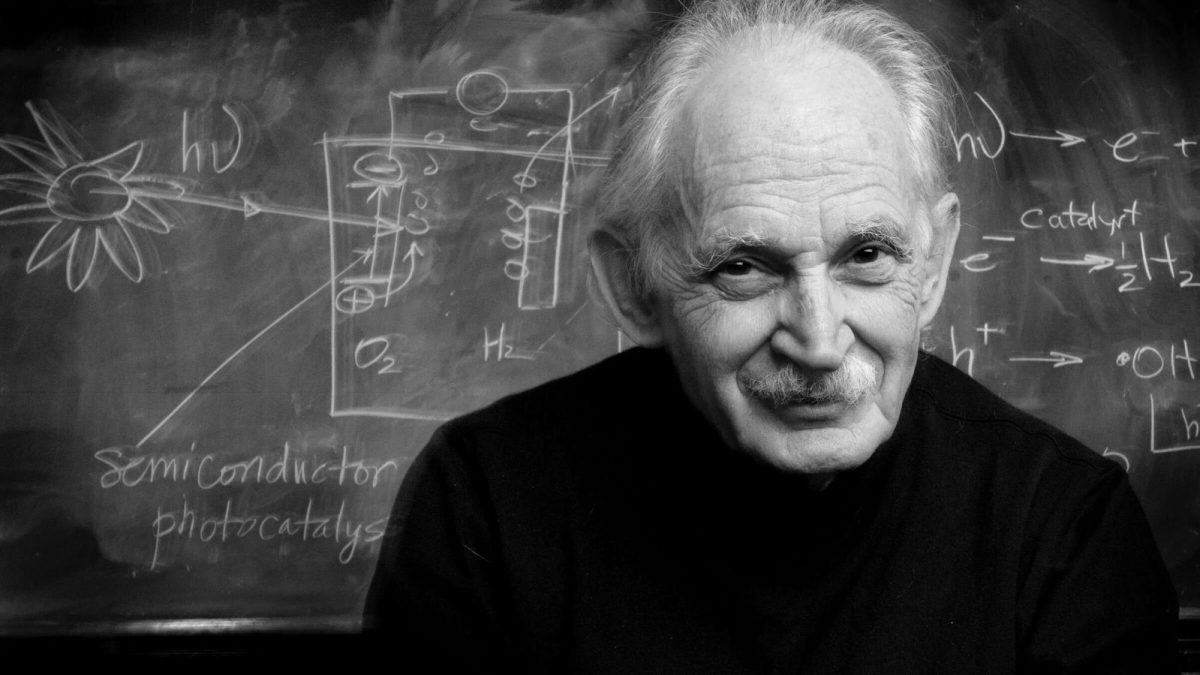Allen J. Bard, a former UT professor nicknamed the “father of modern electrochemistry,” died at 90 years old on Feb. 11.
Bard served as a University faculty member for almost 65 years, according to a University press release. Larry Faulkner, fellow electrochemist and President Emeritus of the University, said Bard pioneered the electrochemistry field with the development of scanning electrochemical microscopy and by authoring the textbook, “Electrochemical Methods: Fundamentals and Applications.”
Faulkner said he studied as a doctoral student under Bard in 1966, later co-authored the textbook with him and worked closely with him until his death. He said Bard modernized and transformed the electrochemistry field.
“Combining a voracious appetite for science and the ambition to do important things with humanity is a very unusual combination, and everybody who remembers (Bard) will remember those things (about him),” Faulkner said.
Bard won “every great prize in chemistry,” and was even in talks of receiving the Nobel Prize, Faulkner said.
“He had a tremendous, voracious interest,” Faulkner said. “His command of his own field was absolutely brilliant.”
Bard’s greatest accomplishment is the legacy that lives on in his students, said Hang Ren, an assistant professor in electrochemistry.
“He actually started a lot of things … really ahead of the game,” Ren said. “He’s very fearless … and not just in one small field — he pioneered quite a bit of different sub-fields in electrochemistry.”
Ren said although electrochemistry is a niche area, Bard demonstrated to other scientists and people the field’s relevance.
Alireza Karimaghaloo, an electrochemistry expert managing electrolysis durability, said Bard’s work significantly influenced his career path and the field of electrochemistry as a whole.
“I remember the exact moment I first opened Prof. Bard’s textbook during my graduate studies. It felt like someone had finally turned on the light in a room I’d been fumbling around in the dark,” Karimaghaloo said in a statement. “It wasn’t just the science that captivated me; it was Bard’s palpable enthusiasm for electrochemistry that leaped off the pages, igniting a similar passion within me.”
During a moment of adversity in his research regarding semiconductor electrodes, Karimaghaloo used Bard’s work to guide him through it.
“His spirit of inquiry has been a constant companion in my career,” Karimaghaloo said in a statement.
Karimaghaloo said Bard’s sense of inquiry and scientific mastery will continue to leave a legacy in electrochemistry and those who looked to him as the guiding figure in the field.
“Prof. Bard’s relentless pursuit of knowledge wasn’t just about advancing his own work; it was about pushing the whole field forward,” Karimaghaloo said in a statement. “His blend of curiosity and rigor reminded me why we do what we do. It’s not just for the sake of science but for the potential impact on the world.”
Editor’s Note: This story has been updated to reflect a change in a source’s attribution. The Texan regrets this error.















